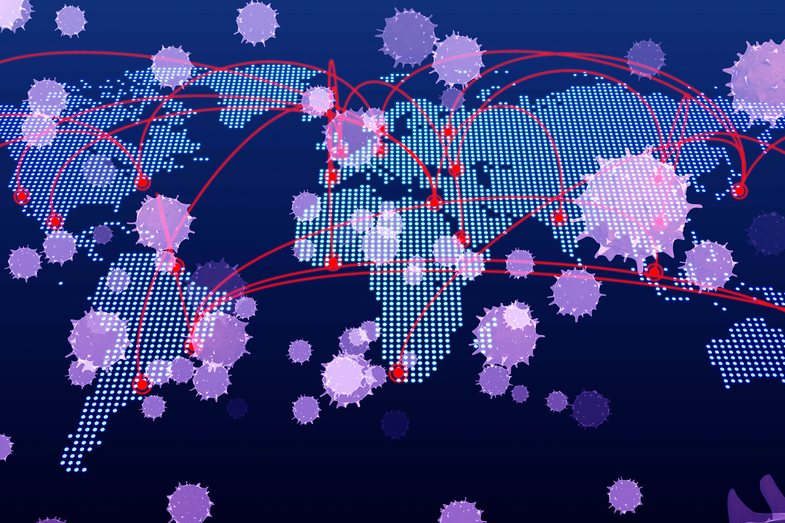
There has been criticism of the WHO for declaring a health emergency as well as declaring the coronavirus as a pandemic.
The WHO declared the pandemic just over a month after designating Covid-19 a Public Health Concern with International Concern (PHEIC *) on January 30, 2020. At the time, there were less than 100 cases and no deaths outside China, according to the WHO .
PHEIC - an official statement from the WHO of an extraordinary event which is determined to pose a public health risk to others.
Countries unprepared following WHO statement on global health emergency
Many experts have said that the early global disasters, including the lack of PCR tests and the lack of protective equipment for doctors, contributed to the rapid spread of the virus in several countries during February.
Covid-19 was the sixth epidemic to be declared PHEIC. Previous diseases included H1N1, wild-type polio, Ebola (in 2014 and 2019) and Zika virus.
"The pandemic declaration is not part of the WHO system - it does not have a legal meaning like PHEIC [global health emergency]," Clare Wenham, assistant professor of global health policy at the London School of Economics, told Euronews.
So the pandemic statement is likely to be a "use of language to encourage governments to take the threat seriously when PHEIC had not been as effective as hoped."
A PHEIC is the highest level of alarm under international law and it was agreed as such by member states that this would trigger collective action.
Indeed, the WHO Director-General, Dr. Tedros Adhanom Ghebreyesus, said in March as he announced the pandemic that WHO officials were alarmed by the level of government "inaction" to stop the spread of Covid-19 and went on to stress that it was still possible to limit the spread of the virus through testing. case tracking and isolation.
Did the statement come late?
Michael Mina, an assistant professor of epidemiology at Harvard University, told Euronews that he had spoken to major testing companies in early 2020 and they told him they were not sure if they were mass-producing tests for Covid-19.
"Sikur OBSH ta deklaronte virusin pandemi në janar, do t'u jepte kompanive disa muaj kohë që të ndërtonin infrastrukturën e tyre të testimit,” tha ai.
Një komitet i OBSH-së u mblodh në 22 janar 2020 dhe vendosi të mos deklarojë PHEIC, por e ndryshoi vendimin një javë më vonë kur situata evoloi me shpejtësi.
"PHEIC është krijuar për të qenë një thirrje normative për t'i bërë qeveritë të zgjohen ndaj rrezikut dhe të fillojnë të përgatiten," theksoi Clare Wenham. "Për shumë arsye, kjo nuk ndodhi siç pritej në fillim të vitit 2020", tha ajo, duke përmendur se qeveritë që nuk e morën seriozisht rrezikun.
"Në fillim të janarit, ne e dinim se kjo ishte një pandemi dhe shumë prej nesh po e thonim atë publikisht. Në momentin që pamë që virusi po përhapej në të gjithë Azinë Lindore, Azinë Juglindore dhe në Lindjen e Mesme, brenda disa javëve nga zbulimi i parë, duhet ta kishim deklaruar atë si një virus pandemik. Ne nuk e bëmë; bota nuk e bëri dhe kjo për mua ishte fillimi i mosveprimit si përgjigje,” u shpreh Michael Mina.
Ndër të tjera, ai theksoi:
"Një vit në këtë pandemi,pas gjithë çfarë kemi parë, ne ende diskutojmë nëse njerëzit kanë nevojë për një recetë nga një mjek për të bërë një test Covid ... në këtë pikë është e tmerrshme për mua.”
Mina u shpreh se çfarë ka ndodhur tregon "paaftësinë tonë për t'u përballur me sfidat pasi agjencitë qeverisëse dhe politikëbërësit nuk po e luftojnë këtë virus në mënyrën si duhet”.

Sources: Euronews, Guardian





